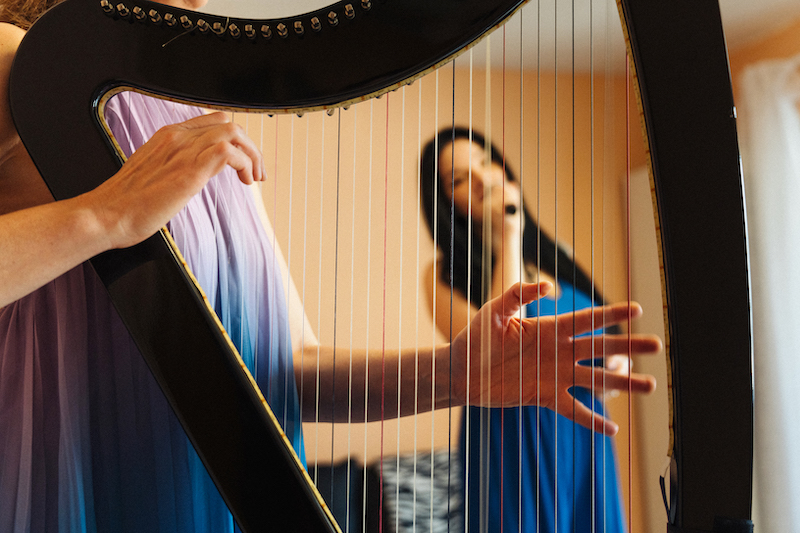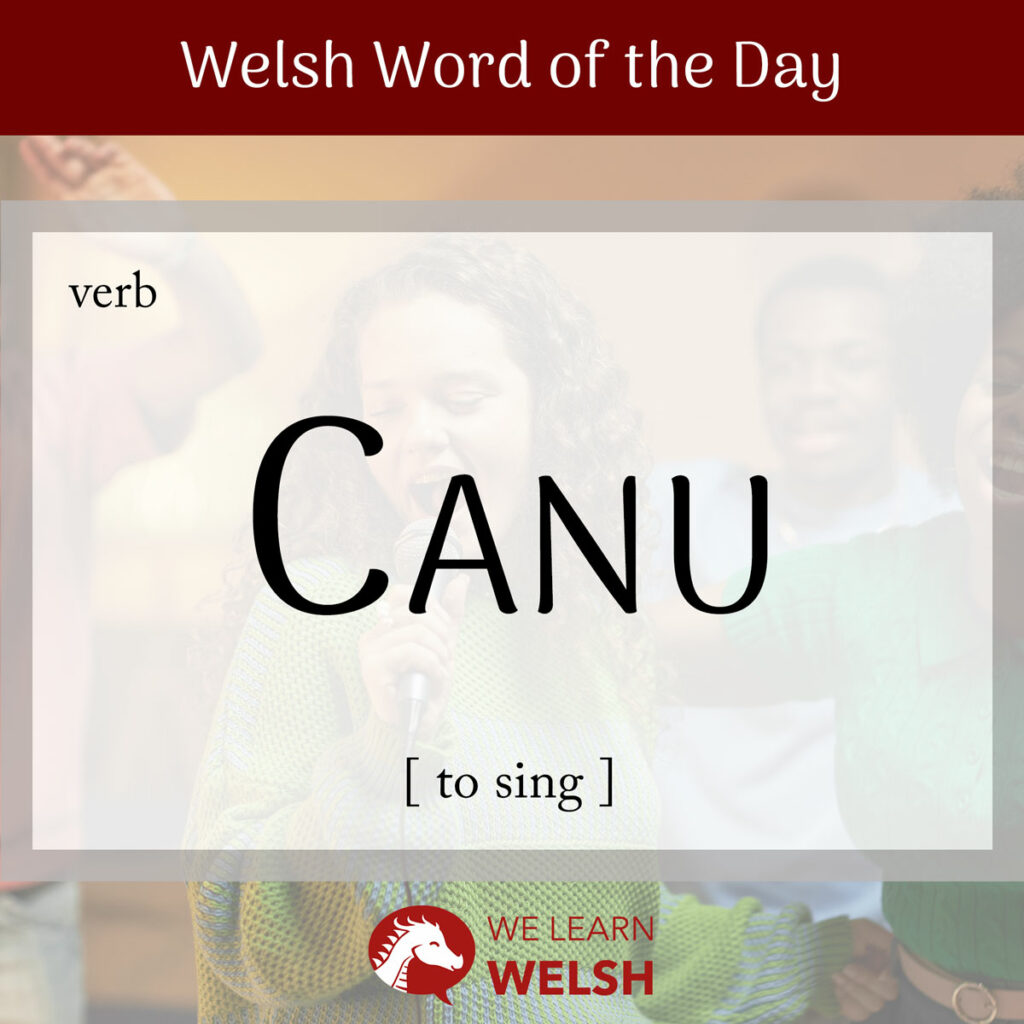If you’ve ever admired Tom Jones’ unique croon, Cerys Matthews’ poetic lyrics, or the lilting melody of a traditional Welsh folk tune, you’ll understand how Wales came to be known as Gwlad y Gân (the Land of Song). Cerddoriaeth (music) is a huge part of Welsh culture, and so it’s definitely worth being able to talk about the verb canu (to sing).
canu
to sing
Canu comes from the proto-Celtic kaneti, which itself is derived from a proto-Indo-European root word, meaning that it’s related to plenty of English words, such as chant and charm.
A song is a cân (pl: caneuon), or sometimes in flowery literary writing, a cerdd (pl: cerddi), the same word used for poem. Cerdd might be familiar to you from the longer word cerddoriaeth – poetry and music are intrinsically linked in Welsh culture, and the Welsh are just as proud of our beirdd (poets/bards) as we are of our canwyr and cantoresau (singers [m/f]).
The poetic and melodic nature of Welsh culture is embedded into the language itself. One feature that gives Welsh its sain gerddorol (musical sound) is, of course, the treigladau (mutations). Here they are for canu.
Soft mutation
ganu
Nasal mutation
nghanu
Aspirate mutation
chanu
The mutations for cân follow the same pattern, and since it is a feminine noun, it mutates to y gân (the song).
You’ll hear the word canu throughout Wales, as there’s no North/South variation. In some descriptive writing, though, you can also come across the synonym pyncio, or even lleisio, although the latter is most accurately translated as to vocalise, and can refer to singing, speaking, or shouting.
There are plenty of common Welsh terms derived from the words canu and cân:
- ynganu = to speak or utter
- cydganu = to sing along
- utganu = to blow a trumpet
- dychanu = to satirise
- mawlgan = song of praise
- caniad = another word for song (though it also means permission)
- cynghanedd = harmony or concordance, referring to traditional patterns of alliteration and internal rhyme in Welsh poetry and music
What has been set to music is, in Welsh, ar gân – literally, on a song.
Mae gen ti lais hyfryd, beth am ganu cân i ni?
You have a lovely voice, why not sing us a song?
Many idioms related to singing are similar to their English equivalents. For example, to sing her praises is canu ei chlod hi, to sing for joy is canu gan lawenydd, and you can make a song and dance about something by canu tiwn gron, literally, singing a round tune. Welsh kettles sing just the same way English kettles do: mae’r tegell yn canu is the kettle is singing.
But one thing that is unique about the word canu compared to its English equivalent is that it is used to refer to a much wider variety of sounds and actions. A larwm (alarm), a ffôn (phone) and a cloch (bell) all sing rather than ring, and even cats canu grwndi (purr).
Most importantly, canu is used to refer to playing an offeryn (instrument). Though in casual spoken Welsh, it’s also acceptable to use chwarae (play), canu is considered the more formal and elegant choice.
Mae fy chwaer i’n mwynhau canu’r soddgrwth.
My sister enjoys playing the cello.
Being able to canu’r ffidil (play the violin/fiddle), canu’r piano (play the piano) or canu’r gitâr (play the guitar) will all stand you in good stead in Wales, but there’s probably nothing as impressive as being able to say Dw i’n gallu canu’r delyn (I can play the harp), the national instrument of Wales.
In particular, the harp is important for the unique musical style of cerdd dant (literally: string music). In this genre, the datgeiniad (performer) sings a well-known poem aloud to an improvised vocal melody, with the accompaniment of a telynor (harpist).

The place you’d be most likely to hear cerdd dant these days is almost certainly the Eisteddfod, a Welsh folk festival made up of a series of competitions focussed on cerddoriaeth and barddoniaeth (poetry). You’ll also hear côr-ganu (choir singing) and plenty of canu gwerin (folk singing).
The importance of cerddoriaeth werin (folk music) in Wales is reflected throughout Eisteddfodau, twmpathau (community dances), and school assemblies. As a pupil in a Welsh-language primary school, I even got sent home every week with geiriau caneuon (song lyrics) to learn as homework!

